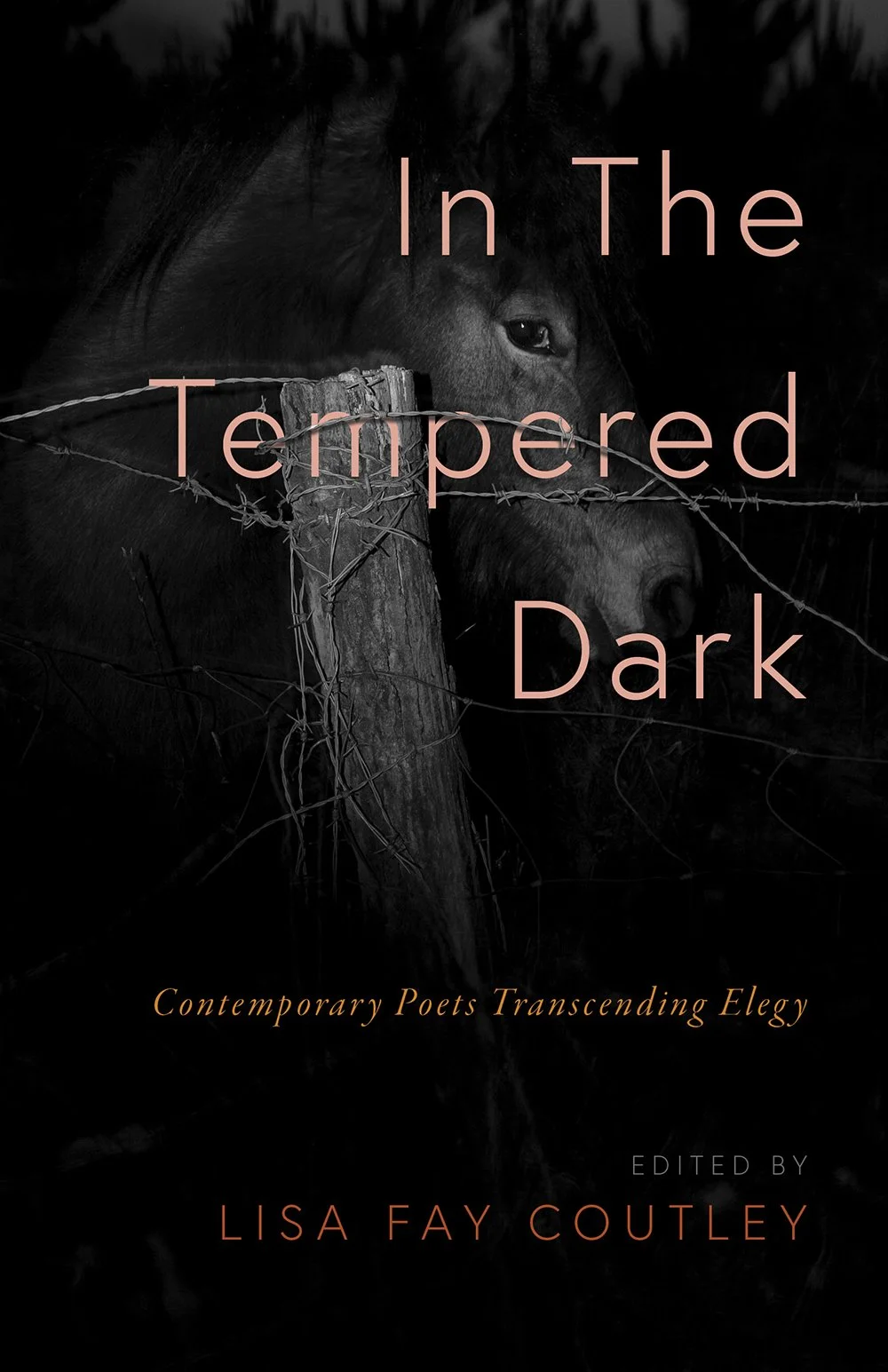In The Tempered Dark
In the Tempered Dark: Contemporary Poets Transcending Elegy
Edited by Lisa Fay Coutley
Reviewed by Katie Richards
Lisa Fay Coutley has curated a stunning anthology that not only gives the reader a chance to encounter moving poems surrounding a breadth of grief topics but also allows the reader a chance to enter into the process and consideration of craft with the poets through their micro essays. As I read this collection of poets, I was struck by the feeling of communion in these pages, the respite I didn’t know I needed, and the headlong journey into others’ grief that would open my own experiences of grief I’d often been denying in the wake of my father’s unexpected death eight months ago.
In The Tempered Dark: Contemporary Poets Transcending Elegy addresses a breadth of grief topics such as death, addiction, abuse, abandonment, diaspora, illness, estrangement, climate crisis, relationships ending, racism, and mass violence through both poems and the micro essays that immediately follow them. Through these essays, this work extends beyond the elegy and explores how, as Jess Williard states in his micro essay “Begonias,” “at its best the poem facilitates through its representation an experience beyond itself, an experience beyond both what is described and that description.”
The innovation and insight into craft these micro essays offer helps to balance the weight of grief in the poems, allowing one to move forward through the collection without feeling overburdened. The rawness in the micro essays provides another angle of intimacy in the grieving process. The way the micro essays converse with the poems is varied—some clarify, some contextualize, some address emotional process, but all complicate the poems in various, profound ways. This conversation creates a beautiful interweaving that in many ways replicates the momentum and pathway of grieving, which is nonlinear, sometimes circular, and always complex.
Ruth Awad writes in her untitled micro essay, “My grief is not your grief. But that doesn’t mean we can’t sit together in it,” and I would argue this anthology does the delicate, brilliant work of allowing poets and readers to sit together in and with their grief.
Katie Richards
Katie Richards’ (she/her) premier collection Apple Mind was selected as an editors' pick for the Laureate Prize and is forthcoming from Harbor Editions. It was also a semi-finalist for the 2021 Philip Levine Prize for Poetry. Her poetry has previously appeared in Valparaiso Poetry Review, Harbor Review, DIALOGIST, Softblow, South Dakota Review, and Sweet Tree Review among other places.



